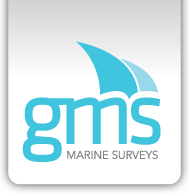Close to Sinking!
Thankfully there have recently been several reports in the yachting press highlighting that vessels are being fitted with inferior brass seacocks and these seacocks failing at an early stage in their life, with potentially serious consequences.
Guy contributed images appearing within some of these reports and actually found a typical example about 6 weeks ago on a large cruising yacht, the reporting of which helped to prevent a £100,000 yacht going to the bottom! Fortunately the vessel was ashore when his probe went straight through the wall of this seacock.

You might think that the consequences of such an unseen failure would be covered by all good quality insurance policies – however you could be wrong!
Reportedly policies available in the market today do exclude the consequences of gradual incursion of water into a vessel or water escaping from appliances or pipes or gradual leakage. Imagine the consequences of leaving your cherished vessel on her mooring for a couple of weeks, then receiving a call from the marina to say that she had sunk and subsequently finding out after a few frantic ‘phone calls that your insurance policy gave you no cover at all for that type of loss!
It’s not just seacocks that might fail, there’s the shaft, gaiters etc. etc.
Inferior fittings made from materials such as brass (which are not suitable for use below the waterline, especially in salt water) can fail in less than 5 years whereas an owner might unknowingly expect them to be good for perhaps 15 to 20 years. Astonishingly such valves conform with the standards laid down by the Recreational Craft Directive and in many cases look very much like dzr (dezincification resistant brass), being the more suitable material along with bronze. Many of these fittings are in fairly inaccessible places and the chances are they may not therefore receive the sort of regular inspection that a more accessible fitting would.
Points to note then are:
- Before purchase, and every few years thereafter, have a qualified surveyor inspect the vessel thoroughly. You may know a lot about boats, but he is trained to know more!
- If you are replacing Seacocks or Valves always ensure you know exactly what material you are buying and that it is either bronze or dzr brass when used in salt water below the waterline. Other alternatives such as ‘Marelon’ are also available and suitable for some applications.
To summarise, regularly check your Seacocks, oh and your Insurance policy wording!
The dangers of accelerated galvanic and electrolytic corrosion are highlighted in this MAIB report following a serious incident on-board the vessel ‘Random Harvest’ which is well worth a read.
quote callback

